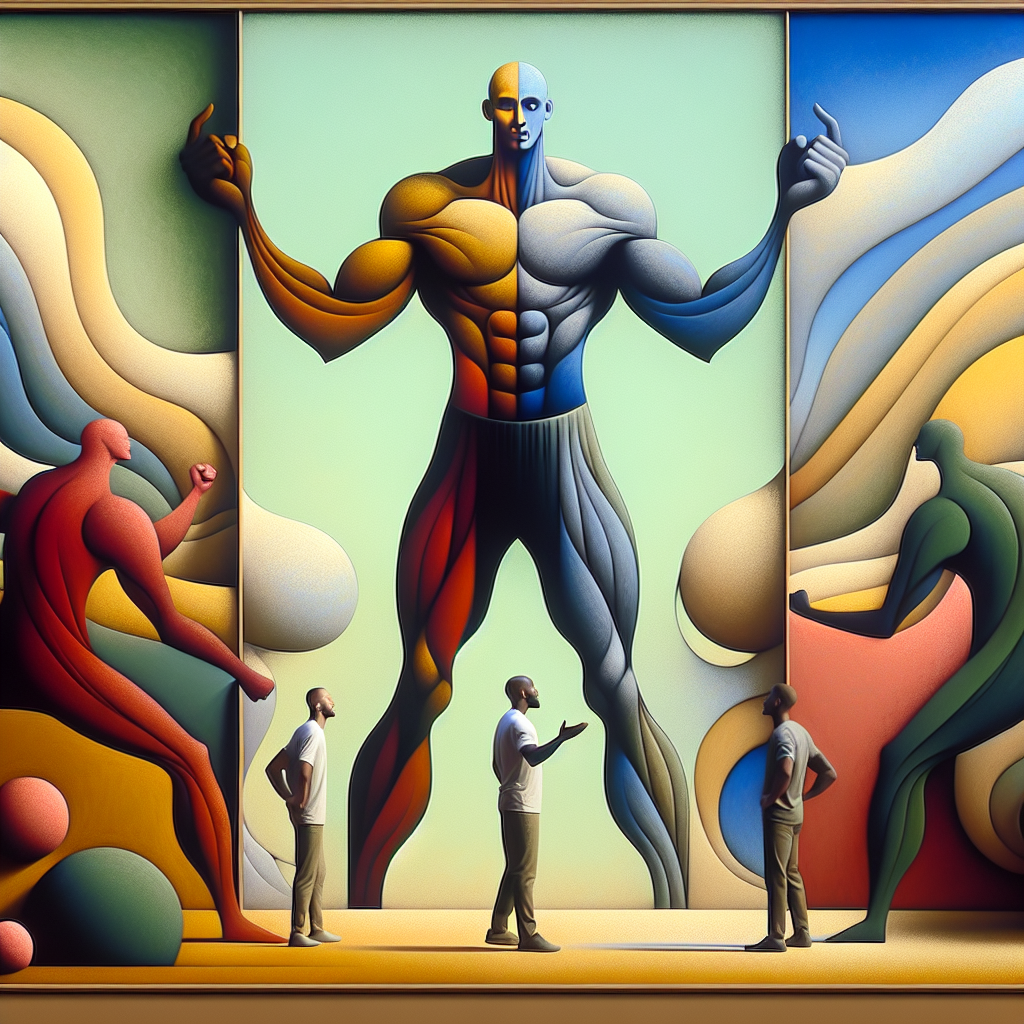Shaquille O’Neal weighs in on Joel Embiid vs. Nikola Jokic debate

Shaquille O’Neal’s Perspective: Embiid’s Dominance Vs. Jokic’s Versatility
In the ever-evolving landscape of the NBA, the debate over who reigns supreme among the league’s centers has become a focal point of discussion. At the heart of this debate are two towering figures: Joel Embiid of the Philadelphia 76ers and Nikola Jokic of the Denver Nuggets. Both players have carved out unique niches in the league, each bringing a distinct style of play that has captivated fans and analysts alike. Recently, NBA legend Shaquille O’Neal offered his perspective on this ongoing debate, providing insights that highlight the contrasting strengths of these two exceptional athletes.
Shaquille O’Neal, a dominant force in his own right during his playing days, is no stranger to the intricacies of the center position. His analysis of Embiid and Jokic is rooted in an appreciation for the diverse skill sets they bring to the court. O’Neal has often praised Joel Embiid for his physical dominance and ability to control the paint. Embiid’s imposing presence, combined with his scoring prowess and defensive capabilities, makes him a formidable opponent. O’Neal notes that Embiid’s traditional center attributes—such as his shot-blocking and rebounding—are reminiscent of the classic big men who have historically dominated the NBA. This ability to influence the game on both ends of the floor is a testament to Embiid’s dedication to mastering the fundamentals of the position.
Conversely, Nikola Jokic represents a new breed of center, one that emphasizes versatility and playmaking. O’Neal acknowledges Jokic’s unique skill set, which includes an exceptional passing ability that sets him apart from his peers. Jokic’s court vision and basketball IQ allow him to orchestrate the Nuggets’ offense with precision, often acting as a point center. This versatility is further underscored by his ability to stretch the floor with his shooting, making him a constant threat from beyond the arc. O’Neal appreciates Jokic’s innovative approach to the center position, which challenges traditional notions and expands the possibilities of what a big man can achieve in the modern game.
While O’Neal refrains from definitively declaring one player superior to the other, he emphasizes the importance of context when evaluating their contributions. Embiid’s dominance is often highlighted in scenarios where physicality and interior presence are paramount, whereas Jokic’s versatility shines in systems that prioritize ball movement and spacing. O’Neal suggests that the debate is less about determining who is better and more about appreciating the distinct ways in which each player impacts the game. This perspective encourages fans and analysts to celebrate the diversity of talent in the league rather than confining greatness to a singular definition.
In conclusion, Shaquille O’Neal’s insights into the Embiid vs. Jokic debate offer a nuanced understanding of the evolving role of centers in the NBA. By recognizing the unique strengths of both players, O’Neal underscores the richness of the league’s talent pool and the various ways in which players can leave their mark on the game. As the debate continues to unfold, it serves as a reminder of the dynamic nature of basketball and the endless possibilities for innovation and excellence within the sport.
Shaq’s Take: How Embiid And Jokic Compare In Today’s NBA

In the ever-evolving landscape of the NBA, the debate over who reigns supreme among centers has been a topic of fervent discussion. At the heart of this debate are two towering figures: Joel Embiid of the Philadelphia 76ers and Nikola Jokic of the Denver Nuggets. Both players have redefined the role of a center in modern basketball, blending traditional post play with a versatile skill set that includes shooting, passing, and defensive prowess. Recently, NBA legend Shaquille O’Neal, himself a dominant force in the paint during his career, offered his perspective on this ongoing debate, providing valuable insights into how these two players compare in today’s game.
Shaquille O’Neal, known for his candid and often insightful commentary, has always been a proponent of the traditional big man. However, he acknowledges that the game has changed significantly since his playing days. In discussing Embiid and Jokic, O’Neal highlights the unique attributes each player brings to the court. Joel Embiid, with his imposing physical presence and aggressive style, embodies the classic center archetype. His ability to dominate in the post, combined with a soft shooting touch from mid-range and beyond, makes him a formidable offensive threat. Moreover, Embiid’s defensive capabilities, including shot-blocking and rebounding, are reminiscent of the traditional role centers have played in anchoring a team’s defense.
On the other hand, Nikola Jokic represents a new breed of center, one that prioritizes versatility and playmaking. Jokic’s exceptional passing ability sets him apart, allowing him to orchestrate the Nuggets’ offense from the high post or beyond the arc. His court vision and basketball IQ enable him to make plays that are typically expected from guards, thus redefining the expectations for a player of his size. Additionally, Jokic’s scoring ability, whether through crafty post moves or accurate shooting, adds another layer to his multifaceted game. O’Neal appreciates Jokic’s unique skill set, acknowledging that his style of play is a testament to the evolution of the center position in the modern NBA.
While O’Neal refrains from definitively declaring one player superior to the other, he emphasizes the importance of context when evaluating their impact. Embiid’s physicality and defensive presence are crucial for the 76ers, providing a foundation for their success on both ends of the floor. Conversely, Jokic’s playmaking and offensive versatility are integral to the Nuggets’ dynamic style of play, allowing them to adapt to various defensive schemes. O’Neal suggests that the debate between Embiid and Jokic ultimately hinges on what a team values more in a center: traditional dominance or modern versatility.
In conclusion, Shaquille O’Neal’s analysis of the Embiid versus Jokic debate underscores the diversity of talent in today’s NBA. Both players, through their distinct styles, have carved out significant roles for themselves and have become indispensable to their respective teams. As the league continues to evolve, the comparison between Embiid and Jokic serves as a microcosm of the broader changes in basketball, where versatility and specialization coexist. O’Neal’s insights remind us that while the game may change, the impact of a great center remains a cornerstone of basketball success.
O’Neal’s Analysis: The Impact Of Embiid And Jokic On Their Teams
In the ever-evolving landscape of the NBA, the debate over who reigns supreme among the league’s centers has been a topic of fervent discussion. At the heart of this debate are two towering figures: Joel Embiid of the Philadelphia 76ers and Nikola Jokic of the Denver Nuggets. Recently, NBA legend Shaquille O’Neal offered his perspective on this ongoing discussion, providing a nuanced analysis of the impact both players have on their respective teams. O’Neal, known for his dominant presence on the court during his playing days, brings a unique insight into the qualities that define a great center.
Shaquille O’Neal begins his analysis by acknowledging the distinct playing styles of Embiid and Jokic, which are reflective of their individual teams’ strategies. Embiid, with his imposing physicality and defensive prowess, is often seen as the anchor of the 76ers. His ability to dominate the paint, both offensively and defensively, provides Philadelphia with a formidable presence that can alter the dynamics of any game. O’Neal notes that Embiid’s impact is not solely limited to his scoring ability but extends to his capacity to intimidate opponents and protect the rim, thereby elevating the overall defensive capabilities of the team.
In contrast, Nikola Jokic is celebrated for his exceptional playmaking skills and basketball IQ, which have become the cornerstone of the Denver Nuggets’ offensive strategy. O’Neal highlights Jokic’s unique ability to orchestrate plays from the center position, a skill that sets him apart from traditional big men. Jokic’s vision and passing acumen enable him to involve his teammates in ways that few centers can, creating a fluid and dynamic offensive system. This playmaking ability not only enhances the performance of his teammates but also makes Jokic a constant threat on the court, capable of adapting to various defensive schemes.
Transitioning to the broader impact on their teams, O’Neal emphasizes the leadership qualities that both Embiid and Jokic bring to the table. Embiid’s leadership is often characterized by his emotional intensity and competitive spirit, which can galvanize the 76ers during crucial moments. His presence on the court serves as a rallying point for the team, inspiring confidence and resilience. Meanwhile, Jokic’s leadership is more understated yet equally effective. His calm demeanor and unselfish play set a tone of composure and teamwork, fostering a cohesive unit that thrives on collaboration.
Furthermore, O’Neal points out the challenges each player faces in their quest for NBA supremacy. For Embiid, staying healthy and maintaining consistency are pivotal in ensuring that his impact is sustained throughout the season. Jokic, on the other hand, must continue to refine his defensive skills to complement his offensive brilliance, thereby becoming a more well-rounded player. O’Neal suggests that the ongoing development of these aspects will be crucial in determining their long-term success and influence on their teams.
In conclusion, Shaquille O’Neal’s analysis of Joel Embiid and Nikola Jokic underscores the multifaceted nature of their contributions to their teams. While their styles and strengths differ, both players embody the qualities of modern NBA centers who can shape the fortunes of their franchises. As the debate continues, O’Neal’s insights provide a valuable perspective on the unique impact each player has, reminding fans and analysts alike of the diverse ways in which greatness can manifest on the basketball court.

